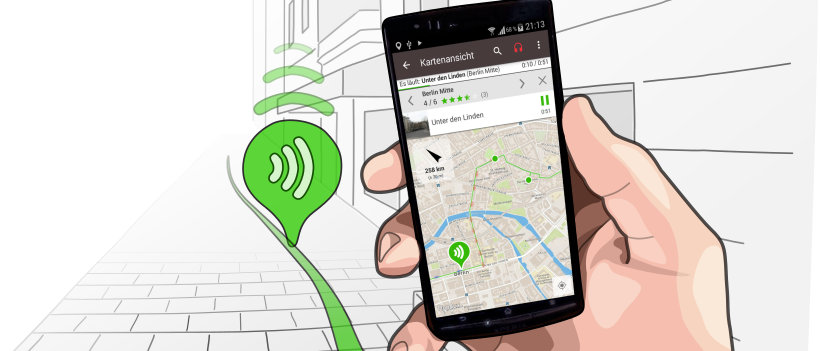Since July 1995, the city of Cologne has honored its “great” son Konrad Adenauer with this bronze monument.
Adenauer has not only rendered great service to the Federal Republic but also to the cathedral city:
Born in Cologne on January 5, 1876, he had a meteoric career just after studying law.
After joining the Catholic Center Party in 1906 and being elected as a councilor, he was already Deputy Mayor of Cologne in 1909.
Not least, his marriage to his first wife gave him access to the then respected and powerful members of the Cologne bourgeoisie.
Adenauer proved himself during the First World War when he organized the food supply in Cologne and also invented “substitute products.”
In 1916, his first wife, with whom he had 3 children, died. In 1919, he married his second wife, with whom he had 5 children.
Konrad Adenauer was mayor of Cologne from 1917 to 1933 and helped the cathedral city to become the “metropolis of the West” with progressive ideas and actions:
Both the forced settlement of industry and infrastructure, such as the Ford works and the Rhine port, and the transformation of the Prussian fortification ring into a “green belt” took place during his term as mayor.
And in this context, we must not forget the opening of the first expressway or motorway between Cologne and Bonn in 1932.
Cologne also has Adenauer to thank for the renewal of the university, music and craft schools.
But he was also involved in foreign policy when he campaigned for the formation of a Rhenish federal state in order to meet France’s security demands and thus
prevent an annexation of the Rhineland.
The right-wing in particular did not like his politics, and so it was not surprising that the Nazis deposed Konrad Adenauer as mayor after they seized power.
During the 12 years of Nazi rule, Adenauer withdrew to his new property in Rhöndorf near Bonn and was temporarily part of the circle of conspirators after the failed assassination attempt on Hitler in July 1944.
He was even taken into custody by the Gestapo for a short time.
Adenauer remained true to his Christian-social convictions even after the war and in 1948 was president of the Parliamentary Council set up by the Allies and thus a key father of the Basic Law.
On September 15, 1949, he was elected the first Federal Chancellor. In terms of foreign policy, he was keen to quickly regain sovereignty, which he believed could only be achieved with Western ties and European integration.
Reconciliation with arch-enemy France was also a high priority for him.
In domestic policy, he relied on the social market economy: social housing and the introduction of a dynamic pension came during his time as Chancellor.
His reputation brought him and his party, the CDU, an absolute majority in the 1957 election.
But the worsening Cold War and, not least, the hesitation and lack of a tough stance against the Soviet Union after the building of the Wall in August 1961 caused his authority among the people and the party to wane.
The pressure within the party on the “old man” in the CDU to make way for a successor also led to Adenauer’s resignation on October 12, 1963.
Adenauer died in Rhöndorf on April 19, 1967.
Portrait of Adenauer as a video
*We can almost “fall in” at St. Aposteln, one of Cologne’s Romanesque churches right here next to the Adenauer memorial. The church is also open during “normal” times, so if it’s open, we should go in. It’s worth it! *
Image source 2nd image: French President Charles de Gaulle and Chancellor Konrad Adenauer, Federal Archives, B 145 Bild-F015892-0010 / Ludwig Wegmann / CC-BY-SA 3.0, CC BY-SA 3.0 DE https://creativecommons.org/licenses/by-sa/3.0/de/deed.en, via Wikimedia Commons



